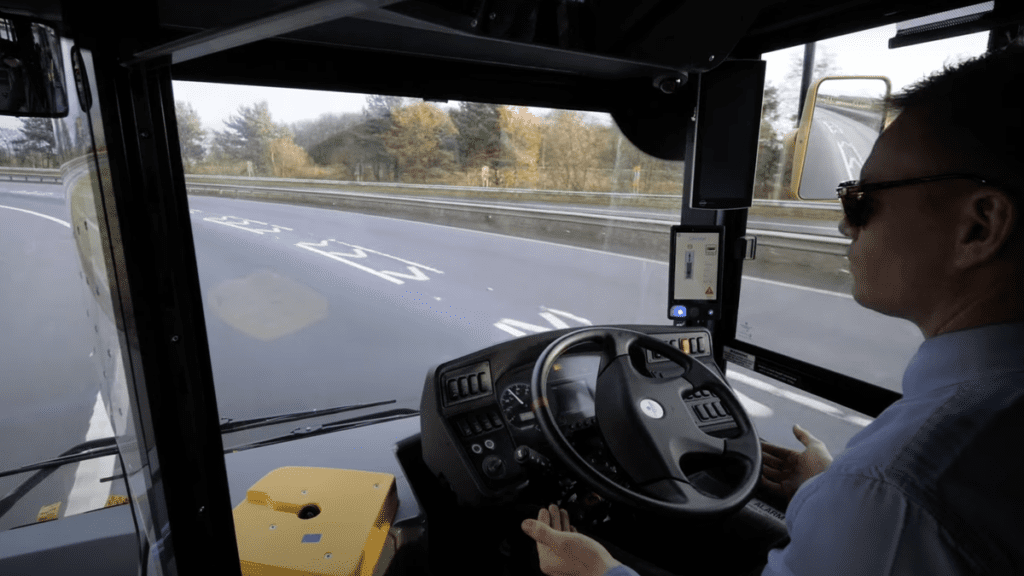Scottish Self-Driving Bus Only Needs Two Humans to Operate

Travelers making the 14-mile trip to the Edinburgh Park train and tram interchange from a park-and-ride in Fife, Scotland, will be able to pile into one of five double-decker self-driving buses starting in May—though the autonomous aspect may not be immediately evident to customers.
Autonomous Bus Service, Passenger Showreel – Project CAVForth
The buses come from the Scotland-bast company Stagecoach. The five buses, capable of transporting 10,000 passengers per week will travel a predetermined route between the Ferrytoll park and ride and public transit options in Edinburgh, according to the BBC. However, while the buses will operate autonomously, they won’t be driverless:
They will have two members of staff on board.
A safety driver will sit in the driver’s seat to monitor the technology, and a so-called bus captain will help passengers with boarding, buying tickets and queries.
The UK government said Project CAVForth would be the world’s first full-size, self-driving public bus service.
Scottish government Transport Minister Kevin Stewart said: “This is an exciting milestone for this innovative and ambitious project, and I very much look forward to seeing Project CAVForth take to the roads next month.
“Our trunk road network can provide a wide range of environments as a diverse testing ground, and the ground-breaking and globally significant project will really help Scotland establish its credentials on the world stage.”
Harry Shum Jr. Used to Steal His Parents’ Mercury Tracer, ‘Responsibly’
Sure, self-driving vehicles still have a long way to go before they can be out of sight of a driver, but calling these buses self-driving doesn’t really jive with how we envision autonomous vehicles.
After $10 billion in investment and 10 years or research, we still have self-driving vehicles that can barely make left-hand turns. The companies that seem at the forefront of true self-driving vehicles, Cruise and Waymo, have had lots of problems navigating urban streets with cars going off line at intersections, getting into fender benders, and human drivers hitting the autonomous cars and then driving away. It very well may be that true self-driving cars never happen, or are operated by a human at a command center much like drones—an option the UK seems ready to reject.



